Discover 10 Tips for a Healthy Evening Routine to Improve Sleep Quality! Dive in for a good night's rest
Namaste Readers! Are you finding it difficult to get a good night's sleep? Toss and turn, eyes wide
open when the clock strikes 2 AM? Don't worry, you are not alone! In today's fast-paced world, many of us struggle to switch off our minds and bodies at the end of the day.

But don't fret, creating a healthy evening routine can make all the difference! A well-structured evening helps your body wind down, prepares you for restful sleep, and ensures you wake up feeling refreshed and ready to conquer the day.
So, dust off those sleep problems and let’s dive into these easy-peasy tips to create your own effective evening routine!
Dim the Lights, Reduce the Strain:
Think of your bedroom as a temple of peace and relaxation. About two to three hours before your planned bedtime, start dimming the lights in your house. Bright lights, especially from electronic devices, can suppress the production of melatonin, a hormone that regulates sleep.
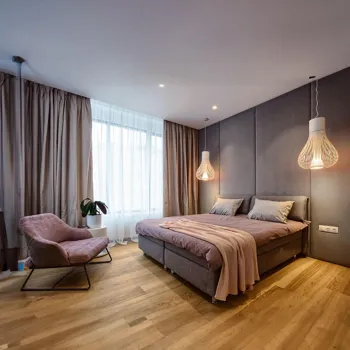
Switch to warmer, softer lighting using lamps or candles (safely, of course!). This signals to your brain that it’s time to wind down. If you’re watching television or using your phone, turn on the night mode or use a blue light filter.
This will reduce the strain on your eyes and minimize the disruptive effects of blue light. Consider investing in blackout curtains to further darken your bedroom and create optimal sleep conditions. Remember, creating a calming environment is key to getting that beauty sleep!
This simple adjustment can have a significant impact on your overall sleep quality.
Digital Detox: Unplug to Recharge:
Nowadays, we are all glued to our phones and laptops. Emails, social media, and endless notifications keep our brains buzzing. However, try to create a digital curfew at least an hour before bed.
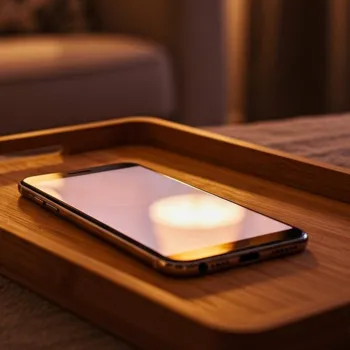
This means no scrolling through Instagram, no checking work emails, and no binge-watching your favorite shows. The blue light emitted from these devices tricks your brain into thinking it’s still daytime, making it harder to fall asleep.
Plus, the constant stimulation can keep you mentally alert and anxious. Instead of using your devices, try reading a book (a physical book, not an e-reader!), listening to calming music, or spending time with your family. Engage in activities that are relaxing and don't involve screens.
Let your mind rest and recharge for a more peaceful night's sleep. Believe me, your brain will thank you for it!
Calming Rituals: Create a Soothing Routine:
Establishing a consistent bedtime routine is like sending a signal to your body that it's time for sleep. This can involve anything that you find relaxing and enjoyable. Take a warm bath with Epsom salts or lavender oil. Read a book (something light and not too stimulating).
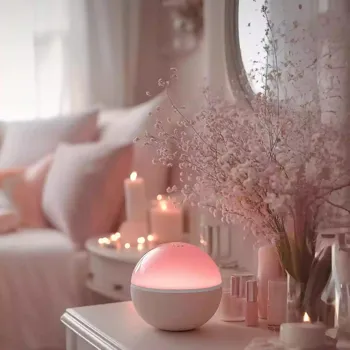
Practice gentle stretching or yoga. Listen to calming music or a guided meditation. Write in a journal to clear your mind of worries or thoughts. The key is to choose activities that are calming and enjoyable for you, and to do them consistently every night.
Over time, your body will associate these activities with sleep, making it easier to fall asleep quickly and stay asleep throughout the night. This consistency is super important, so stick with it, even on weekends!
Mindful Breathing: Inhale Calm, Exhale Stress:
Stress and anxiety are major sleep disruptors. Practicing mindful breathing techniques can help calm your mind and prepare you for sleep. Try the 4-7-8 technique: Inhale deeply through your nose for 4 seconds, hold your breath for 7 seconds, and exhale slowly through your mouth for 8 seconds.
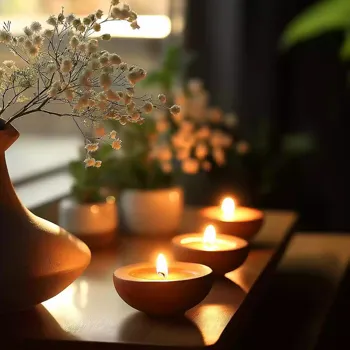
Repeat this several times until you feel yourself relaxing. Another technique is simply focusing on your breath. Pay attention to the sensation of each inhale and exhale, without trying to control or change it. If your mind wanders, gently bring your attention back to your breath.
Even a few minutes of mindful breathing can make a big difference in reducing stress and promoting relaxation before bed. There are also many guided meditation apps available that can help you with this practice. Close your eyes, breathe deeply, and let go of the day's worries.
Ditch the Caffeine and Alcohol, Yaar:
While a cup of chai or coffee may seem like the perfect pick-me-up in the afternoon, it can wreak havoc on your sleep if consumed too close to bedtime. Caffeine is a stimulant that can keep you awake and prevent you from falling asleep easily. Avoid caffeine at least six hours before bed.

Similarly, while alcohol may initially make you feel sleepy, it can disrupt your sleep later in the night. Alcohol can interfere with your sleep cycles and lead to fragmented sleep. Instead of caffeine or alcohol, opt for herbal tea, warm milk, or plain water in the evening.
These beverages can help you relax and prepare for sleep without disrupting your sleep cycle. Remember, what you consume in the evening can significantly impact your sleep quality.
Bedtime Snack: A Light Bite for Sleep:
Going to bed hungry can be just as disruptive to sleep as going to bed too full. Hunger pangs can keep you awake or wake you up in the middle of the night. Having a light snack before bed can help stabilize your blood sugar levels and prevent hunger from interfering with your sleep.

Opt for a small, healthy snack that is easy to digest. A banana can be a very good choice! Avoid processed snacks, sugary treats, and heavy meals close to bedtime. The goal is to satisfy your hunger without overloading your digestive system.
Just a little something to keep those midnight hunger noises away!
Temperature Control: Cool is Key for Zzzs:
Your body temperature naturally drops when you sleep. Creating a cool and comfortable sleeping environment can help facilitate this process and promote better sleep. A bedroom temperature between 60 and 67 degrees Fahrenheit (15-19 degrees Celsius) is generally considered ideal for sleep.

You can adjust the temperature using your air conditioner or fan. Make sure your bedding is comfortable and breathable. Choose natural fibers like cotton or linen, which can help regulate your body temperature and prevent you from overheating.
Getting the temperature just right can make a world of difference in your sleep quality.
Comfortable Bedding: Invest in Your Rest:
Your bed should be a haven of comfort and relaxation. Invest in a good quality mattress, pillows, and sheets that support your body and promote restful sleep. Choose a mattress that is firm enough to support your spine but soft enough to contour to your body.
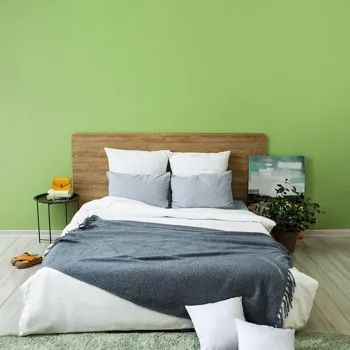
Your pillow should support your head and neck in a neutral position. Choose sheets that are soft, breathable, and comfortable against your skin. Regularly wash your bedding to keep it clean and fresh. A comfortable bed is an investment in your health and well-being.
Don't skimp on this important aspect of your sleep environment!
Exercise Wisely: Time Your Workouts Right:
Regular exercise is beneficial for overall health and sleep. However, avoid intense workouts close to bedtime. Exercise can stimulate your body and mind, making it harder to fall asleep. Aim to exercise earlier in the day, preferably in the morning or early afternoon.

If you prefer to exercise in the evening, make sure to finish your workout at least three hours before bed. Gentle activities like yoga or stretching can be done closer to bedtime to promote relaxation.
Finding the right balance between exercise and sleep is crucial for both your physical and mental well-being.
Consistent Schedule: Train Your Body Clock:
Maintaining a consistent sleep schedule, even on weekends, is crucial for regulating your body's natural sleep-wake cycle. Go to bed and wake up at the same time every day, even if you don't feel tired.
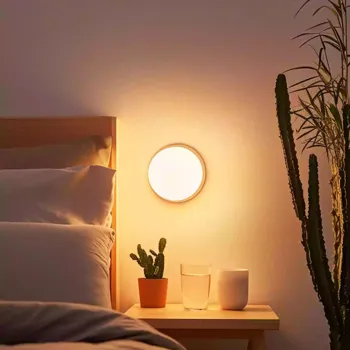
This will help train your body clock and make it easier to fall asleep and wake up at the desired times. Avoid sleeping in too late on weekends, as this can disrupt your sleep cycle and make it harder to fall asleep on Sunday night. Consistency is key to promoting healthy sleep habits.
Think of it as training your body to sleep better!
So there you have it! Ten simple yet effective tips to create a healthy evening routine for better sleep. Implement these tips gradually and find what works best for you. Remember, good sleep is essential for your physical and mental health.
Sweet dreams, folks! And wake up feeling amazing!
AI Generated Content. Glance/InMobi shall have no liability for the content


















